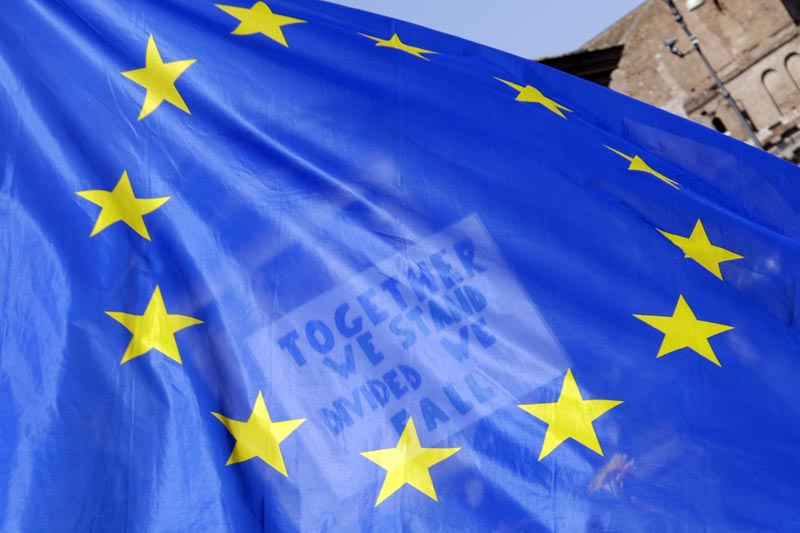EU leaders mark bloc's 60th anniversary as turning point
ROME : European Union leaders marked the 60th anniversary of their founding treaty on Saturday as a turning point in their history in the knowledge that Britain will officially trigger divorce proceedings from the bloc next week.
In their solemn declaration ending the summit, the 27 leaders sought to end paralysis that has gripped the bloc on several issues and enshrined the notion that some member states will be able to move ahead on some issues while others remain on the sidelines.
Desperately trying to portray that sustained unity is the only way ahead in a globalized world, the no-show of British Prime Minister Theresa May was a symbol of the cathartic crisis the 27 other EU nations are going through.
European Commission President Jean-Claude Juncker called Brexit "a tragedy."
EU Council President Donald Tusk said that sustained unity for was the only way for the EU to survive.
"Europe as a political entity will either be united, or will not be at all," he told EU leaders at a solemn session in precisely the same ornate hall on the ancient Capitoline Hill where the Treaty of Rome founding the EU was signed on March 25, 1957.
"Only a united Europe can be a sovereign Europe in relation to the rest of the world," Tusk said. "Only a sovereign Europe guarantees independence for its nations, guarantees freedom for its citizens. "
To move ahead though, the leaders recognized that full unity on all things will be unworkable.
"We will act together, at different paces and intensity where necessary, while moving in the same direction," said the declaration signed by the 27 nations.
The EU has often done that in practice in the past, with only 19 nations in the eurozone and not all members participating in the Schengen zone of borderless travel.
In a series of speeches, EU leaders also acknowledged how the bloc had strayed into a complicated structure that had slowly lost touch with its citizens, compounded by the severe financial crisis that struck several member nations over the past decade.
Italian Prime Minister Paolo Gentiloni, who was hosting the summit, said that over the past dozen years the EU's development had stalled.
"Unfortunately, we stopped" he said, and "it triggered a crisis of rejection."
At the same time though, the summit in sun-splashed Rome, where new civilizations were built on old ruins time and again, there also was a message of optimism.
"Yes, we have problems, yes there are difficulties, yes there will be crisis in the future, but we stand together and we move forward," Gentiloni said. "We have the strength to start out again."
At the end of the session, all 27 leaders signed a new Rome Declaration saying that "European unity is a bold, farsighted endeavor."
"We have united for the better. Europe is our common future," the declaration said.






